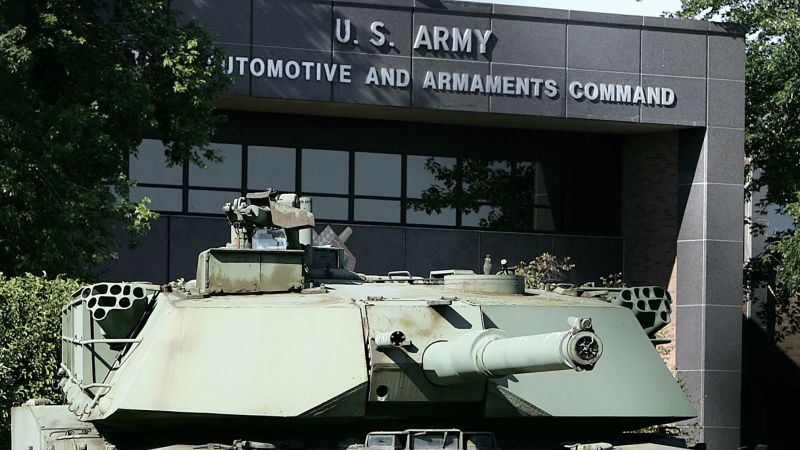On Wednesday, the Justice Department announced the arrest of a former member of the Michigan Army National Guard, identified as Ammar Abdulmajid-Mohamed Said, aged 19. He was apprehended under allegations of attempting to execute a mass shooting at a United States military base located in Michigan, purportedly on behalf of the ISIS terrorist organization. This alarming incident raises significant concerns regarding domestic terrorism and the potential infiltration of extremist ideologies within military ranks.
Said was taken into custody on a day that authorities claim was earmarked for the attack. Prior to his arrest, he was seen visiting an area near the military base and even launched a drone, which he intended to use for supporting the attack plan. The facility in question is the Army’s Tank-Automotive and Armaments Command, situated in a suburb of Detroit. This command is responsible for managing crucial elements of the Army’s supply chain related to tanks, thus making it a prime target for such radical actions. Federal prosecutors report that Said attempted to assist undercover law enforcement officers in executing the attack, offering to train them in the use of firearms, constructing Molotov cocktails, and equipping them with armor-piercing ammunition and magazines.
In light of these serious charges, Said is facing allegations of trying to provide material support to a foreign terrorist organization as well as distributing information concerning destructive devices. At this stage, it remains unclear whether Said has legal representation. His prior military background includes spending two years with the Michigan Army National Guard, until his discharge in December. Reports indicate that he was involuntarily discharged due to failure to complete initial entry requirements, as confirmed in a statement from a Michigan National Guard spokesperson.
The Michigan National Guard emphasized its foundational principles of trust, integrity, and accountability within the organization. They expressed their commitment to uphold the highest professional standards for all members, reiterating that any deviation from these standards will be met with appropriate actions in accordance with the law and internal policies. This incident has sparked a conversation regarding the adequacy of screening and oversight processes within military organizations, particularly concerning the influence of extremist ideologies.
Court documents reveal that Said engaged in extensive correspondence with undercover FBI agents, convinced they were fellow supporters of ISIS. As part of his meticulous planning for the intended attack, he conducted reconnaissance by flying a drone over the Army base last November to observe security measures and assess the entrances, exits, and the flow of vehicles around the facility. Additionally, he reportedly considered the option of storing weapons in a commercial storage unit adjacent to the base and boasted about his proficiency in using a rifle, a skill he attributed to his National Guard training.
Interestingly, Said displayed an awareness of potential law enforcement scrutiny; he attempted to obscure his actions by placing an Apple AirTag in the undercover agents’ vehicle to monitor their movements. Despite this attempt at caution, he seemingly relinquished his reservations and proceeded with the plotting of the alleged attack. The arrest highlights the critical role of counterintelligence in uncovering and thwarting threats against national security. Brig. Gen. Rhett Cox, the commanding general of Army Counterintelligence Command, remarked on the issue, asserting that this arrest serves as a poignant reminder of the ongoing vigilance required to identify and disrupt potential threats to the nation.
The ISIS organization, which once occupied significant territories in Iraq and Syria, has inspired a multitude of terror-related incidents worldwide since its emergence over a decade ago. Although military efforts from the US and its allies have considerably weakened the group’s global influence, its persistence remains a pressing concern. Previous attacks linked to individuals with affiliations to ISIS have raised alarms about the threat to domestic security. Moreover, recent incidents, such as a terror attack in New Orleans that resulted in 14 fatalities and involved an Army veteran with connections to ISIS, have further intensified the dialogue about the threats posed by extremist factions.
This story continues to evolve, with updates expected as further details emerge regarding the motives, planning, and the legal proceedings against Said. As concerns grow regarding domestic extremism and its potential ramifications, the collaboration between law enforcement, military institutions, and intelligence agencies remains paramount to thwarting future threats.



